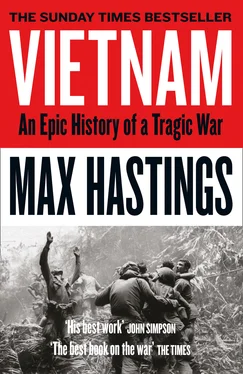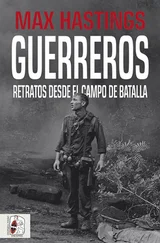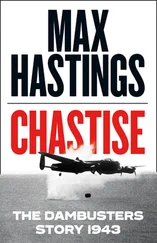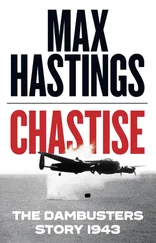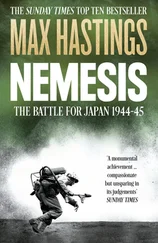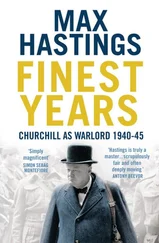The war threw up many larger-than-life French leaders, such as the huge, red-bearded Col. Paul Vanuxem, a fifty-year-old intellectual warrior, qualified to hold tenure as a professor of philosophy. Maj. Marcel Bigeard had gone into World War II as a sergeant, and parachuted into France in 1944. Col. Christian de Castries was a cavalryman and a dandy, never without his silk scarf, who cherished his reputation as a ladies’ man. There were famous women, too – the likes of Valérie André, a doctor who was also a helicopter pilot, and the highly decorated airborne nurse Paule Dupont d’Isigny.
In the autumn of 1952 Giap concentrated three divisions on the east bank of the Red River, tasked with seizing Nghia Lo, a strategically important ridge. Thanks to night marches and brilliant use of daylight concealment, each man looking to the backpack camouflage of the soldier in front of him, they deployed unnoticed by the French. Then, in a series of assaults that began on 17 October, they overran a chain of posts. Marcel Bigeard’s para battalion covered the retreat of the surviving detachments towards the Black River, in a series of actions that became a nightmare legend. They were obliged to abandon their wounded, and local people later reported finding Bigeard’s trail adorned with the severed heads of those left behind, set on stakes by the Vietminh. The major and those of his men who survived were greeted as heroes when at last they reached the French lines, but the Nghia Lo battles had been a significant disaster.
In April 1953 the communists opened a new front in Laos, to disperse French strength. By June, Chinese deliveries of supplies and munitions had risen from 250 tons in the same period the previous year to two thousand tons a month, together with Molotova trucks and bulldozers. Meanwhile French forces were running short of officers and NCOs, many of the North African troops were scarcely trained, and nobody retained much confidence in the spirit of 110,000 locally recruited soldiers. Gen. ‘Iron Mike’ O’Daniel, senior US Army officer in the Pacific, visited Saigon in the summer of 1953, soon after Gen. Henri Navarre became commander-in-chief. With characteristic bombast the American urged the French to stir their stumps – adopt a more aggressive military posture. The Korean experience had shown that when lightly-armed Chinese troops caught Americans in the open, they sometimes prevailed. But where circumstances were contrived in which US forces held prepared positions covered by air- and firepower, they became almost invincible. Why could not the French exploit the same realities? Navarre agreed. He cast about for a battlefield on which French strength and Vietminh weakness could be laid bare before the world. He chose Dienbienphu.
3
The Fortress That Never Was
1 WAITING FOR GIAP
So many ‘fatal decisions’ were made in Indochina that it would be invidious to single out any for primacy, but that which was made in November 1953 removed any lingering doubt about who was to become the victor, who the vanquished. Dienbienphu was a relatively small battle, engaging on the colonialist side barely a division. Yet it assumed decisive moral significance, because it was launched as a French initiative, with the explicit purpose of bringing the Vietminh to battle, and was then lost for reasons that reflected epic bungling. Navarre’s bosses in Paris were in those days almost as confused as was the general himself, being unwilling either to give up the struggle or to continue it. France’s Committee of National Defence concluded at a November meeting that the strategic objective was ‘to oblige the enemy to recognise the impossibility of achieving a decisive military outcome’. This could only be achieved by delivering punitive blows at some or all of Giap’s six regular formations, deployed in the north. Yet Adm. Georges Cabanier was thereupon dispatched to Saigon, bearing instructions for Navarre to attempt nothing ambitious: everything important should henceforward be left to the politicians.
On 2 November, however, the general had determined to reoccupy in strength an old camp at Dienbienphu, 175 miles west of Hanoi and close to the border with Laos. The decision was made without much intelligence about the enemy’s whereabouts or intentions: Giap was always better informed than his French counterpart, partly through well-placed communists in Paris, whose first loyalty was to the Party rather than to the tricolor . Nonetheless, Navarre said afterwards, ‘We were absolutely convinced of our superiority in defensive fortified positions.’ His deputy responsible for Tonkin, Maj. Gen. René Cogny, was a big, self-important forty-nine-year-old who had endured Gestapo captivity in World War II. Cogny favoured concentration upon defence of the Red River delta, but acquiesced in Navarre’s new plan.
By creating a powerful air–land base so far west, they reasoned that its garrison could sally forth to interdict Vietminh movements, and give the enemy a bloody nose if he dared to attack the camp. Occupying the cluster of hamlets known as Dienbienphu would deny Giap access to a big rice- and opium-growing area. Though its airstrip lay far from Hanoi, Cogny could call upon sixty-nine C-47 Dakotas to meet the garrison’s eighty-ton daily supply requirement. Most of the perils to French forces were deemed to lie in the initial drop onto a ‘hot’ DZ, where a Vietminh battalion was known to be encamped.
Navarre, a fifty-five-year-old veteran of World War I, thought the risks acceptable. He was a chilly, personally fearless and strikingly handsome officer, with little experience of senior command, but a formidable presence and indeed conceit. He had arrived in Indochina the previous May with the sort of mandate that became grimly familiar among his American successors: to create conditions for an exit negotiation from strength. In Washington John Foster Dulles, the dour, unyielding, messianic sixty-five-year-old lawyer who served as Eisenhower’s secretary of state, cited the precedent of Korea, where United Nations forces had fought fiercely to the end – only six months earlier – to empower the UN delegation parleying at Panmunjom. Whatever Navarre’s subordinates said afterwards, there is no convincing evidence that any supposed the downside risks of Dienbienphu to be more than tactical headaches – certainly not that they might precipitate a disaster.
The first two battalions of French and Vietnamese paratroopers jumped at 1035 on Friday, 20 November, just before Navarre met Cabanier, his visitor from Paris. The general almost certainly knew the nature of the directive the admiral bore – not to stick his neck out – and had deliberately pre-empted this. Unfortunately, the French initiative perfectly conformed to the hopes of Ho Chi Minh, Giap and chief ideologist Truong Chinh. At an October meeting in a simple bamboo house deep in the mountains, they had agreed that contesting the Red River delta merely enabled the French to apply forces and firepower close to their own bases. The Vietminh objective must be to tempt them instead to disperse, then strike where their troops ventured furthest. With a characteristic gesture and figure of speech, Ho raised his clenched fist and likened it to French strength in the east, then said, ‘But if you spread your hand, it becomes easy to break the fingers, one by one.’ Navarre, by extending a finger westward to Dienbienphu, fulfilled Ho’s appointed role for him.
The opening gambit was played when French and Vietnamese paras began to leap from C-47s over their designated objective, as dispatchers gave the repeated ‘Go! – Go! – Go!’ that propelled them from the dim fuselages and engine roar into brief sunlit coolness six hundred feet above the steamy landing zone. Foremost among the tough, unyielding French officers swaying beneath their canopies was Col. Pierre Langlais, a forty-four-year-old Breton of boundless courage but limited intellect and notoriously vile temper. They landed into the firefight they had expected: a medical officer, making his first combat drop, took a bullet in the head before he hit the ground. By nightfall the attackers had forced the Vietminh to withdraw with substantial losses: they secured a perimeter, at the cost of fifteen of Langlais’ men dead and thirty-four wounded. He himself was cursing even more freely than usual, because he smashed his ankle in the drop, as many parachutists do, and had to be evacuated to spend a month in plaster.
Читать дальше
